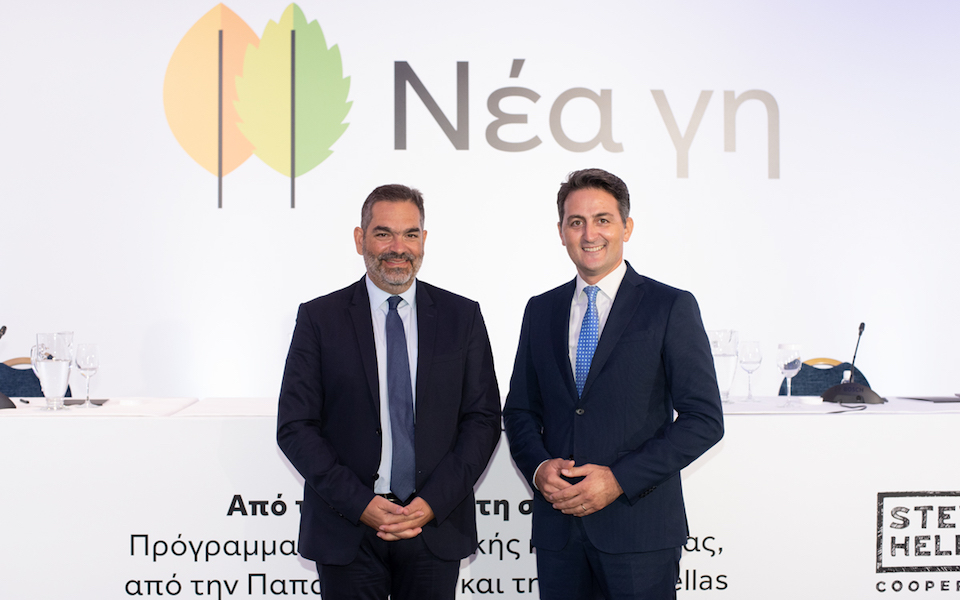Shifting from tobacco to stevia

Stevia is a plant whose processing requires the same engineering equipment as tobacco. Its yields are almost three times higher per square meter than tobacco, and, especially if it is the organic version, it has a far better producer price than tobacco.
Therefore the natural sweetener that is the main substitute for sugar has been the subject of a significant experiment in two villages in Thrace: Dokos in Rodopi and Filia in Xanthi. Farmers there used to cultivate tobacco, but demand for it has declined.
That experiment, the “Nea Gi” (new earth) program, is supported by local tobacco company Papastratos, a Philip Morris affiliate, and by the Stevia Hellas cooperative. It was presented on Thursday at a press conference in the context of the Thessaloniki International Fair.
The two sides were represented by Papastratos Vice President Iakovos Kargarotos and Stevia Hellas CEO Christos Stamatis, who signed a cooperation agreement in the presence of Rural Development Minister Spilios Livanos.
In the context of their joint program, 100,000 square meters of stevia are already being cultivated, and the aim is to increase that two- or threefold in 2022. The program will also be implemented elsewhere, with one candidate being the traditional tobacco producing region of Agrinio in Aitoloakarnania.
Stamatis explained that stevia cultivation requires the very same equipment tobacco uses because, just like tobacco, it concerns the collection of leaves. Performance can reach up to 400 grams per square meter, against tobacco’s 150 g/sq.m., while organic stevia rates for producers range around 5 euros per kilo, against €4/kg for tobacco.
What’s most important is that the stevia market is growing thanks to the shift away from sugar and toward natural sweeteners in various products such as refreshments, ice tea and chocolate bars. That swing to stevia is happening both thanks to the consumer trend away from foods with sugar, and the policy that many countries now follow, with the imposition of tax on sugar: Currently more than 50 countries have imposed a sugar tax, mainly on refreshments containing sugar.





